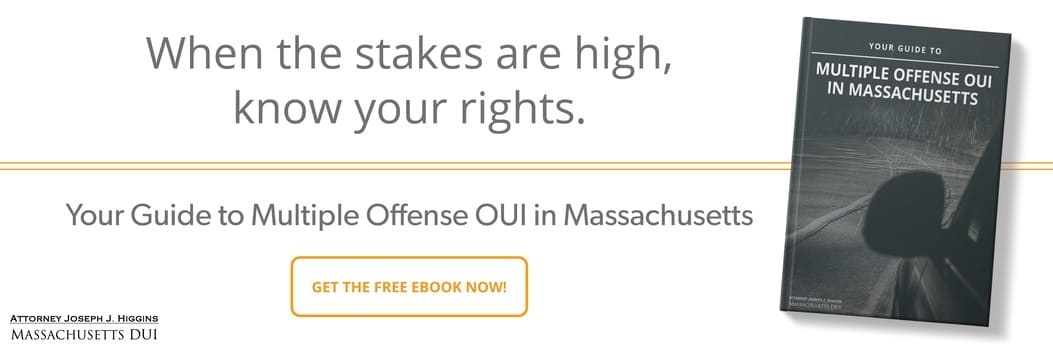Repeat DUI offenders have less (or no) access to “alternative disposition” options in sentencing and will face greater penalties if convicted. A second DUI offense is still considered a misdemeanor in Massachusetts, but a third or subsequent offense would become a felony with mandatory jail time and no eligibility for alternative sentences that offer probation instead.
However, the DUI defenses available to you will largely remain the same as those available to a first offender, and your chances of beating the case are the same—no matter whether it’s your first offense or your third. This is because the jury will never know about your prior offenses while considering your case. The facts of your current charges are all that matter.
Use the Best DUI Defenses to Fight the Charges
DUI attorneys often try to establish that the evidence being held against you was improperly gathered, stored, documented, or interpreted. These strategies can make it hard for the state to establish the burden of proof needed to convict you of DUI.
Plea bargaining with multiple offenses is rarely any use. Also, whether you plead guilty or lose the case in court, multiple offenders are likely to see similar penalties. So, fighting the charges is likely your best bet.
Consult with an attorney to learn if any other options exist. For example, a second offender whose prior offense was more than a decade ago may have access to an Alternative Disposition that provides for a shorter license loss and eligibility for a hardship license—a so-called Cahill disposition. A qualified attorney can advise you on the specifics of your case.
Here are a few of the DUI defenses that are typically used to fight DUI charges in court:
- There Was No Basis For a Traffic Stop: Without reasonable suspicion that a driver may be breaking the law, a police officer cannot initiate a traffic stop. Driving away from a bar at night is not enough to constitute reasonable suspicion. Many successful DUI defenses start by questioning the officer’s reasons for initiating a stop in the first place.
- The Procedures During the Stop Were Illegal: A law enforcement officer must have a reason established by specific facts to order you out of your vehicle. The reliability of results on Field Sobriety Tests can be questioned if not administered correctly.
- The Arrest or Interrogation Violated Your Rights: Any violation of the procedures around your Miranda rights, or evidence of unlawful interrogation, can lead to the suppression of evidence or even, in some rare instances, dismissal of the case.
- Chemical and Sobriety Tests are Unreliable: Much research has challenged the reliability (and pointed out inherent flaws) of the devices and tests used by law enforcement to establish evidence of a specific Blood Alcohol Concentration. for a DUI charge. Subjective or inexpert opinions, maintenance issues, margins of error, and other issues make for effective DUI defenses.
- Evidence Was Improperly Handled: There are strict regulations and policies around the handling and documentation of evidence. Any lapses in procedures may disqualify the evidence from consideration.
- Lapses of Memory or Inconsistency in Testimony: If the prosecution is reliant on testimony from witnesses who present inconsistent views of events, or cannot recall specific elements, it may be possible to challenge the validity of their testimony.
Seek an Expert in DUI Defenses Immediately
Attorney Joe Higgins has defended clients in more trials than most firms in Massachusetts—all related to DUI. Our clients in areas like Plymouth, Norfolk, Barnstable, Bristol, Worcester, Suffolk, and the Cape count on Joe to work hard on reaching the best possible outcome for their situation.
If you’re a multiple offender in Massachusetts, there’s no time to waste. Call us right away to book a free consultation so we can get started on finding the DUI defenses that will be most effective for you.



